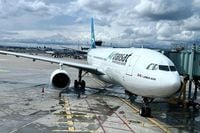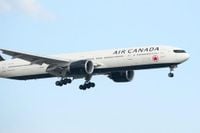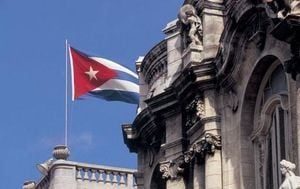As the dust settles from the recent Air Canada flight attendants’ strike, the Canadian airline industry finds itself embroiled in controversy and legal action, with passengers and airlines alike grappling with the fallout. What began as a labor dispute has now spiraled into a class-action lawsuit against Air Transat, accusations of price gouging across the sector, and a scramble by Air Canada to restore customer goodwill with new policies and compensation offers.
The saga began in mid-August 2025, when Air Canada’s flight attendants—represented by the Canadian Union of Public Employees (CUPE)—walked off the job, leading to the cancellation of hundreds of flights. The strike, which started on August 16, left an estimated 500,000 passengers stranded or scrambling to rearrange their travel plans, according to CTV News. While Air Canada and CUPE reached a tentative agreement just three days later, the disruption’s ripple effects have lingered well beyond the picket lines.
Among those most acutely affected was a Canadian couple stranded in Barcelona. According to court documents reported by CTV News and Pax News, the pair had originally purchased two round-trip tickets from Montreal to Barcelona via Rome with Air Canada for $2,784.62. When their return flight was abruptly cancelled on August 14, they found themselves in a bind—facing a shortage of essential medication and desperate to get home. Their only viable option was to purchase two one-way tickets with Air Transat to return to Montreal on August 16. The cost? A staggering $5,355.52, nearly double what they’d paid for their original round-trip flights.
Feeling they had no choice, the couple alleges Air Transat exploited their vulnerability. The class-action lawsuit, filed on August 28, 2025, claims the airline charged “abusive and even illegal amounts” for tickets during the labor dispute, taking advantage of stranded customers. As the court filing puts it, “No reasonable person would pay this amount to travel with Air Transat. The reason Air Transat was able to charge this amount is because the applicant – and the class members in the same situation – were left stranded by the Air Canada labour dispute and had no way to get home, something Air Transat is well aware of and chose to take advantage of by charging excessive prices.”
The legal documents go further, accusing Air Transat of treating the Air Canada strike as its “personal piñata” and “[taking] advantage of vulnerable passengers as much as possible.” The plaintiffs, represented by the law firms LPC Avocats and Renno Vathilakis Inc., are seeking compensation, including punitive damages, interest, and legal costs. They argue that Air Transat hiked its prices during the labor dispute despite no increase in operating costs, and that there is “no justification for Air Transat to charge five times more for an Air Transat flight than for an Air Canada flight (for economy class tickets).”
In response to media inquiries, Air Transat acknowledged it was aware of the class-action lawsuit but declined to comment, stating the matter is before the courts, as reported by Noovo Info. The airline, however, has previously been recognized for its service, having been named the World’s Best Leisure Airline by the Skytrax World Airline Awards seven times—a point the plaintiffs themselves noted, albeit while criticizing the comfort and amenities of Air Transat’s planes compared to Air Canada’s.
Air Transat is not alone in facing accusations of price gouging. During the same period, WestJet also came under fire on social media for sudden fare spikes. The Calgary-based carrier defended its pricing, explaining, “Airlines use tiered pricing based on seat availability. As lower-priced seats sell out, fares rise incrementally until the flight is full. A sudden price jump can happen if a few people book at once, like a family or group. Our apologies for any inconveniences.” This, they argued, is standard industry practice, not opportunistic gouging.
Meanwhile, Air Canada has been working overtime to repair its reputation and regain the trust of frustrated travelers. On August 27, the airline announced a limited-time offer waiving seat change and standard seat selection fees for bookings made between August 27 and September 12, 2025. This gesture applies to flights operated by Air Canada, Air Canada Rouge, and Air Canada Express, and is available regardless of fare type—provided seat selection is completed by September 12. Only one change is allowed within the ticket’s validity period, and any fare difference still applies. The move comes after the airline faced backlash for introducing a seat change fee in January, despite a wave of customer complaints at the time.
According to OpenJaw and Daily Hive, the offer is seen as a goodwill gesture in the wake of the strike, which not only disrupted travel plans but also exposed the airline to public criticism. Air Canada has also expanded its refund and reimbursement options, now covering unplanned expenses such as overnight accommodations and meal costs incurred due to the disruption. The carrier began resuming flights on August 19, ramping up operations as soon as the tentative deal with CUPE was reached. The new agreement is notable for beginning to pay flight attendants for the work they do on the ground before takeoff—an issue that had been a sticking point in negotiations.
The human toll of the strike has been palpable. Canadians have shared stories of missed appointments, family separations, and urgent medical needs left unmet. One mother, for instance, called out Air Canada for making her miss crucial appointments that would have helped her get her father, who has Alzheimer’s, back home to Vancouver and away from escalating conflict in the Middle East. As stories like hers circulated, the pressure mounted on airlines to show flexibility and compassion—a challenge in an industry governed by tight margins and automated pricing algorithms.
Industry analysts say the current controversy raises broader questions about airline pricing during crises. While dynamic pricing is standard, the optics of sudden fare hikes in the wake of mass cancellations can be damaging, fueling public anger and, as seen here, legal challenges. The class-action suit against Air Transat could set a precedent for how airlines are allowed—or not allowed—to price their seats during extraordinary disruptions, especially when passengers have few alternatives and limited bargaining power.
For now, travelers are urged to review their rights and compensation options carefully, and to act quickly if they wish to take advantage of Air Canada’s temporary fee waivers. As the courts prepare to weigh the allegations against Air Transat, the industry faces a moment of reckoning over how it treats customers in times of crisis—and whether the rules of supply and demand should have limits when the stakes are so personal.
The aftermath of the Air Canada strike has left lasting questions about fairness, flexibility, and accountability in Canadian air travel—issues unlikely to disappear from the headlines anytime soon.





